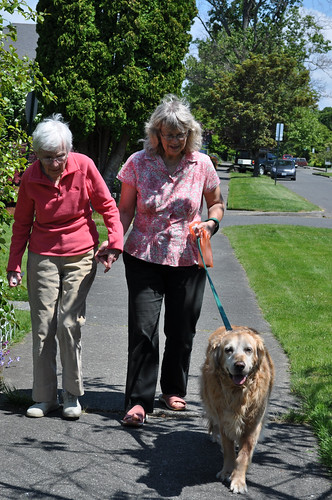
October is National Cooperative Month, and we’re highlighting several projects throughout the month that have been supported through USDA Rural Development’s Cooperative Services. This Co-op Month blog courtesy of Deborah Craig, co-op development specialist with the Northwest Cooperative Development Center, discusses the need for senior health care options in rural America and how the co-op model is rising up to meet the challenge.
A new homecare cooperative is being formed to bring client-centered care to the elderly and handicapped in the coastal town of Port Townsend, Wash., population of just under 10,000. A sense of community runs strong here, and is especially felt for elders. When local caregivers, dissatisfied with current homecare options, met to discuss alternatives, a central concern was the ability to create locally owned, quality homecare services.
The aging baby-boomer wave sweeping America is practically a tsunami here in Port Townsend, where we have the oldest median age in the state of Washington, according to co-op steering committee member Kippi Waters. She believes that client-based, community-centered homecare is only possible with the cooperative model.
Between 2010 and 2030, the number of older Americans is predicted to double, to 72.1 million. Because of the increases in life expectancy, people 90 and over now compromise 4.7 percent of the older population (age 65 and older) compared with only 2.8 percent in 1980!
Some are calling this wave of aging Americans the “Silver Tsunami” and it is rapidly headed our way. With professional caregivers already in short supply, how will we care for these people?
America’s rural elders may be the most adversely affected by the challenges of growing old. Their younger family members may have left the community, and even the nearest neighbor can be miles away.
When older people are forced to move prematurely to more costly assisted living or nursing facilities, the burden falls more heavily on government programs, such as Medicare and Medicaid.
Assistance from trained, professional in-home caregivers offers a solution to this dilemma. Homecare, which is personalized to the individual, can be a much more affordable way to care for rural elders. By encouraging independence and self-directed care, homecare keeps elders in charge of their own lives for as long as possible.
Inspiration and encouragement for forming a homecare co-op in Port Townshend came from another nearby homecare co-op: Circle of Life Caregiver Cooperative in Bellingham, Wash. It was started in 2009 and now boasts annual revenue of more than a $1 million. It and employs more than 50 caregivers, who benefit from the highest pay rate for in-home caregiving in the county.
In the spirit of cooperation, Circle of Life has been a great resource to the Port Townsend group, sharing documents, answering questions and serving as a model for how to fulfill the vision of a world where elders thrive in their homes.
